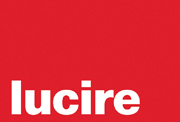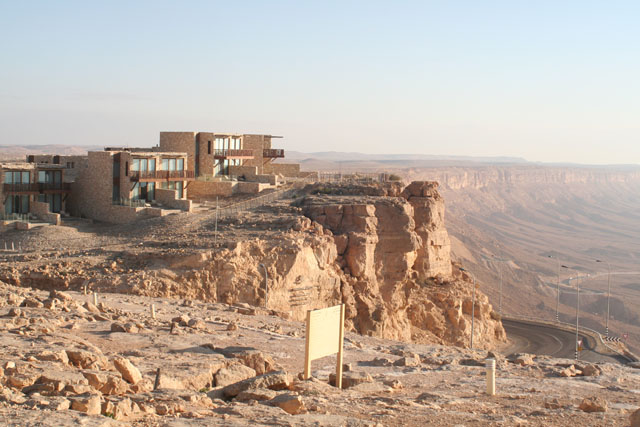|
When one arrives at Beresheet in the emerging community of Mitzpe
Ramon, what will be most striking—especially at sunrise or sunset—is
the way this elegantly sprawling resort looks both ancient and modern
at the same time. At certain times of the day, the structures of
suites and rooms that wind around the hills look almost resemble
a gold chain.
The public areas and private spaces carry the theme forward, with
interiors and appointments that are strikingly simple yet plush
at the same time. After a full exploration of the property and its
offerings, the hotel’s name, which is an Old Testament reference
to ‘the beginning’, is genuinely fitting.
Beyond the “wow” moments that follow arrival and check-in, there are many other surprises in store for the guest, whether they
are people used to staying in boutique or luxury properties in city
centres or travellers actively seeking a retreat in a place that
could be described as ‘God’s country’. The resort seems to lie precariously at the edge of the Ramon Crater, which goes
on for miles but is occasionally dotted with sightings of remote
bikers and hikers. The hotel also offers early morning photography
lesson hikes, empowering guests to capture the drama of the location
for posterity. The outdoor yoga classes are as breathtaking as they
are restorative.
Inside the building, no detail of a perfect civilized vacation
is overlooked. Unlike many of the resorts in the Dead Sea region,
the food is on a par with top Jerusalem and Tel Aviv destination
restaurants. Most of the ingredients are painstakingly culled from
local farms, collectives and purveyors like Kornmehl Cheese Farm,
and the breakfast buffet is truly a culinary highlight, inspired
by regionally authentic recipes forged with a 21st century sensibility.
Likewise, the guest rooms and suites are luxuriously appointed,
and most boast heavenly views.
There is also a wellness aspect to the experience, and Sylvie Cohen-Gabay, General Manager of Beresheet, goes on to explain the room amenities
and products used from the spa are for the most part fashioned by
local companies. Staying at this resort, whether you are an adventure traveller or a luxury enthusiast, will put you in touch with the soul of Mitzpe
Ramon, which is just starting to come of age as a community and
population centre in the Negev, and according to her, embodies David
Ben Gurion’s vision for making the desert bloom. continued below
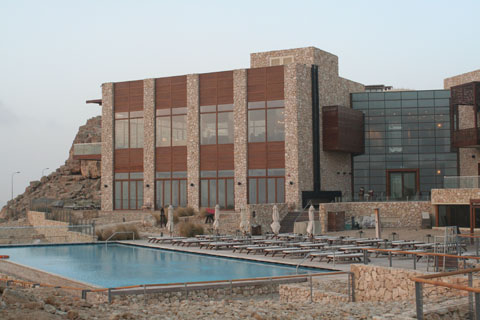
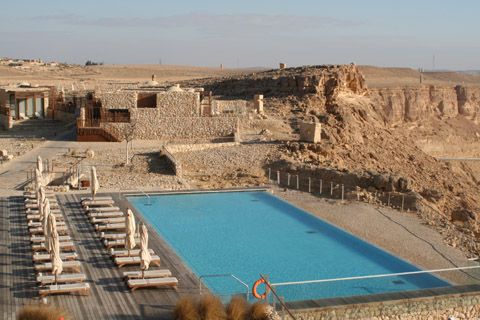
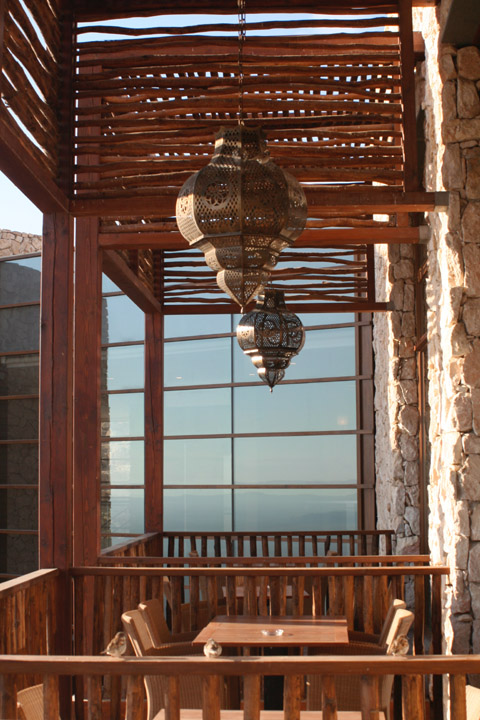
‘Why should people come here? It is a good place with uncommonly
good food, unusual activities and an unforgettable environment that
can’t be duplicated at other properties in Israel or elsewhere,’
muses Cohen-Gabay. ‘I believe Americans will discover things
about the Negev and be moved by them in unexpected ways, perhaps
forever changing any preconceived notions they may have about the
Negev beyond Ben Gurion University, whose technologies and programmes
have helped local businesses serving the hotel grow and create interest
in their products among people living outside Israel.’
The story behind this beautifully paradoxical hotel is equally
complex and compelling. Widely credited for helping transform Eilat
into a destination resort area, Isrotel founder David Lewis contacted
then-PM Shimon Peres out-of-the-blue about the possibility of building
an entity that could help transform remote Mitzpe Ramon into a tourist
destination. As the two were good friends, Peres took a leap of
faith and paid a visit to see the Isrotel Ramon Inn, which was up
until then public housing. As Mitzpe Ramon was not even a village
at that point, the sticking point was in the question of whether
or not it could it be a destination? Lewis responded by taking the
PM to visit the crater, which he felt may influence his decision.
Initially, Peres’s response was, ‘I love Eliat. I love the
sea. I have a yacht down there and there is a lot to do, but the
desert is not my thing.’ Undaunted, Lewis told Peres to think
about it. Six months later, Peres was back to tour Mitzpe Ramon,
from top to bottom, every stone, animal and landmark, according
to Cohen-Gabay. From there, Lewis proposed he could open up a property
which would providing jobs and other economic opportunities to the
community. A few weeks after that, the concept, originally a four-star
hotel, was hatched, and the budget was initially ₪100 million.
When funds to support the ambitious undertaking rose to ₪220 million, the property plan was reconfigured for a five-star hotel.
In order to make Beresheet stand alone as an entity that could
literally spell the beginning for Mitzpe Ramon’s emerging community,
Lewis travelled to resorts around the world, from Morocco to Thailand,
and other five-star resorts in areas that were not highly developed
that found unique architectural and æsthetic ways to tap into the
natural, unspoiled appeal of its surrounding geography.
‘The whole Beresheet philosophy encourages people to go out,
see the crater and experience elements of the environment that will
make their stay different from anything they experience in Israel,’
says Cohen-Gabay. ‘To make the destination as attractive to
locals as to visitors, we are working with local businesses to pick
up in developing the area where the government left off. More needs
to be done to develop this as a tourism area, so our mission as
a hotel is to bring our region up to a higher standard. When we
source local products for the Beresheet experience, everything is
crafted by hand from meals to amenities, which appeals to both the
locals and luxury travellers.’ continued below

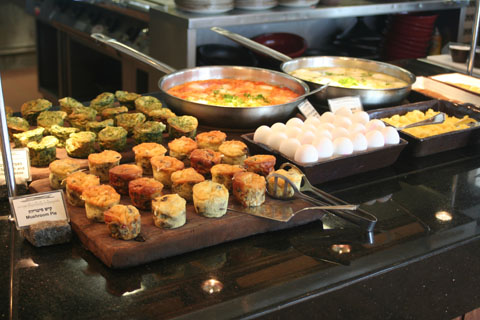
Cohen-Gabay adds that Ramon Crater and the Negev are fertile territory
when it comes to extreme sports including hiking, biking and power
walks. Those less athletically inclined will find plenty to see
and do, among the area’s historic sites and fossils, wildlife, wineries,
cheese farms and alpaca farms. Furthermore, the concierge service
can arrange a variety of activities such as a Jeep safari, cooking
classes, wildlife tours, group bike rides, cooking classes, helicopter
tours and even day trips to Eilat.
While there are no theatres or
boutique shopping a la Tel Aviv, Cohen-Gabay points out that when
you come to this resort, the point of it is to get you back in the
thick of nature. She says that Beresheet is ideal for conventions
as attendees will tend to stay close to the resort and will be more
inclined to do take advantage of group activities and guided excursions
that will shape the way they view the area and its natural beauty.
While Beresheet is not officially a green hotel with
the LEED certification, management has instituted all kinds of ecoconscious
practices to ensure the last great frontier of Israel is lovingly
cared for. While the cheeses on their expansive and exceptional
breakfast buffet are sourced from local cheese farms including Kornmehl,
barramundi fish are farmed in the area along with cherry tomatoes
and other vegetables from organic facilities. The hotel has a complex
rubbish-separating system to whittle out oil, paper, plastic, glass,
and food waste. Oil goes to industry or a safe place for removal.
They have a towel washing policy to conserve water, and laundry
facilities in Eilat. It is also the first hotel to open an electric
car powering station.
Though most of the visitors come from within Israel and from Europe,
and many of those visitors are non-Jewish, Cohen-Gabay predicts
the number of US visitors will increase in the coming years. In
their first year of operation, they were fully booked well in advance
for Passover and the High Holidays. Additionally, they have played
host to a handful of bar mitzvahs and weddings. One bar mitzvah
family staged the actual ceremony in the crater.
When Beresheet opened for business on April 17, 2011, Shimon Peres
was reported to say at the grand opening gala, ‘For me, this
is a dream come true. As I travel a lot in the world, and I can
tell you this is the Taj Mahal of Israel.’ Cohen-Gabay notes
that on that day, there was a photo of Peres shot on the balcony
that evokes a similar shot of visionary Theodore Hertzel. It is
an auspicious sign that this resort has effectively, yet elegantly,
straddled the timeless appeal of nature and history with the future
of Israel’s expanding scope of tourism. •
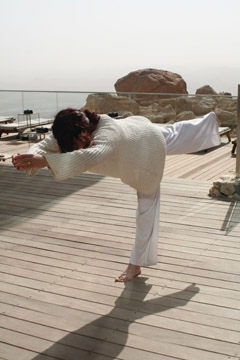 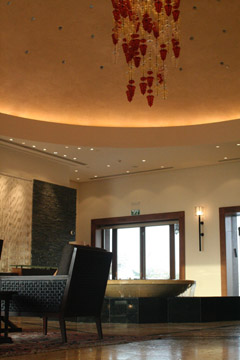
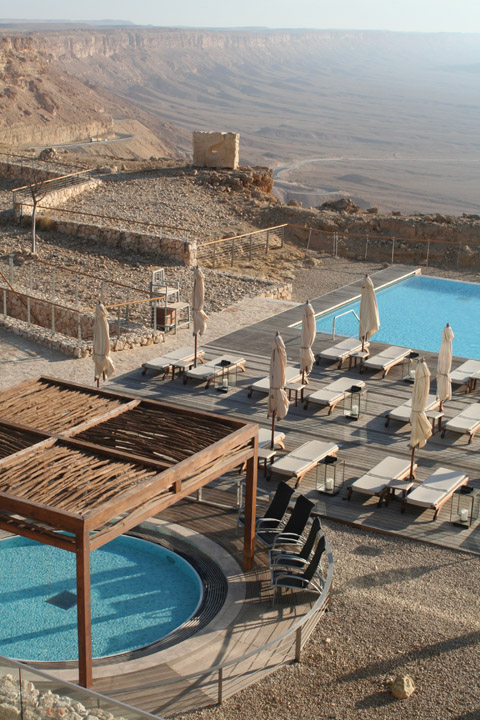
|
 |
‘To make the destination as attractive to locals as to visitors, we are working with local businesses to pick up in developing the area where the government left off. More needs to be done to develop this as a tourism area, so our mission as a hotel is to bring our region up to a higher standard. When we source local products for the Beresheet experience, everything is crafted by hand from meals to amenities, which appeals to both the locals and luxury travellers’
Elyse Glickman is US west coast editor of Lucire.
|
